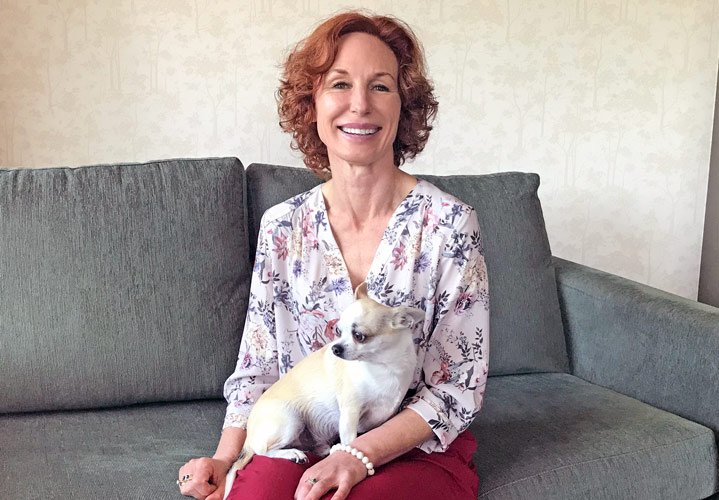
The Eden Alternative: from institution to involvement
In our last blog, we explained how The Eden Alternative was founded to alleviate the problems of loneliness, boredom and helplessness experienced by older people. In this article, Juliette Tuckey explains the difference the Eden approach makes to everyday life at HBH Senior Living and the effect it has on residents’ lives.
Juliette Tuckey has a very special role at HBH Senior Living – working with staff and residents to immerse the Eden Alternative into the culture. She is involved in mentoring and training staff as HBH moves closer to achieving full registration in all ten Eden principles.
At the heart of the Eden Alternative philosophy is the belief that the three major problems that residents suffer from when living in residential care are loneliness, helplessness and boredom, and that these can be overcome by three things: loving companionship, especially with animals, plants and children; providing opportunities for residents to give as well as receive; and imbuing daily life with variety and spontaneity.
Juliette believes that the Eden Alternative is a bit of a ‘wake up call’, particularly for those of us who are ‘young-old’ or younger still. “By 2050, one in five people will be 60 years or older,[1] ” she explains. “A longer life brings great opportunities. Yet the extent to which we benefit from these extra years depends heavily on one key factor: our health.”
Physical health can be challenging as we age, but our wellbeing is more likely to be affected by loneliness, boredom and helplessness – as identified by the founder of The Eden Alternative, Dr William H. Thomas (see the ‘Creating Eden’ blog). In fact, loneliness is now widely understood to be more dangerous to one’s health than smoking[2].
In the past, the focus in aged care facilities was on maintaining a facility that was well equipped, well maintained and run by loyal caring staff whose main concern was the comfort of residents. “Certainly, those things are important, says Juliette, “but, as Dr Thomas discovered, most residents were in fact lonely, bored and living a life without purpose.”
Giving the power back to the people
“The Eden Alternative moves away from institutional living,” she elaborates, “It’s about creating an environment that’s like a home and where residents have a say. It’s about respecting them and the wisdom and experience they have acquired through living; as well as recognising that we all need companionship, spontaneity and meaning in our lives – as younger people do in their daily lives. Think about the life of a young family for example – your days are busy and full, but you have companionship, you have spontaneity and you have a purpose in life.”
The Eden approach also affects the role of staff and caregivers, explains Juliette. “When you do too much for people, or every day is the same; they can feel helpless and institutionalised. Giving the power back to our residents is a huge shift – it allows them to help each other which leads to ‘care partnerships’ and a home environment where there is more of a care balance, creating a deeper sense of belonging for all”
“For example, I once worked with a woman who had dementia and had done very little for herself during the past six months. She would simply sit slumped in a chair throughout the day and slept intermittently at night. Her daughter brought her to our Eden care home and once she had settled in, they were both invited to the dining room where the other residents were having lunch. I looked over and saw that her daughter was crying. Fearing the worst, I asked her what was wrong. ‘Nothing’ was her response – ‘this is the first time I’ve seen Mum feed herself for months. Sitting at the table doing something so normal.’
This is an example of the Eden Alternative at work. A place where everyone feels safe, secure and involved. Where some residents help to set up the dining room; everyone in the care family dines together, others help with the dishes. Everyone helps one another – so everyone has a purpose.”
Animals, plants and visits from school children have also been integrated into daily life at HBH Senior Living, thanks to the Eden Alternative. “Living, breathing, growing things are all a part of a healthy human habitat.” Says Juliette. “We all need these things to live well, no matter what our age.”
[1] Global strategy and action plan on ageing and health (2016 – 2020)
[2] https://www.forbes.com/sites/quora/2017/01/18/loneliness-might-be-a-bigger-health-risk-than-smoking-or-obesity/#71fa3e1725d1
